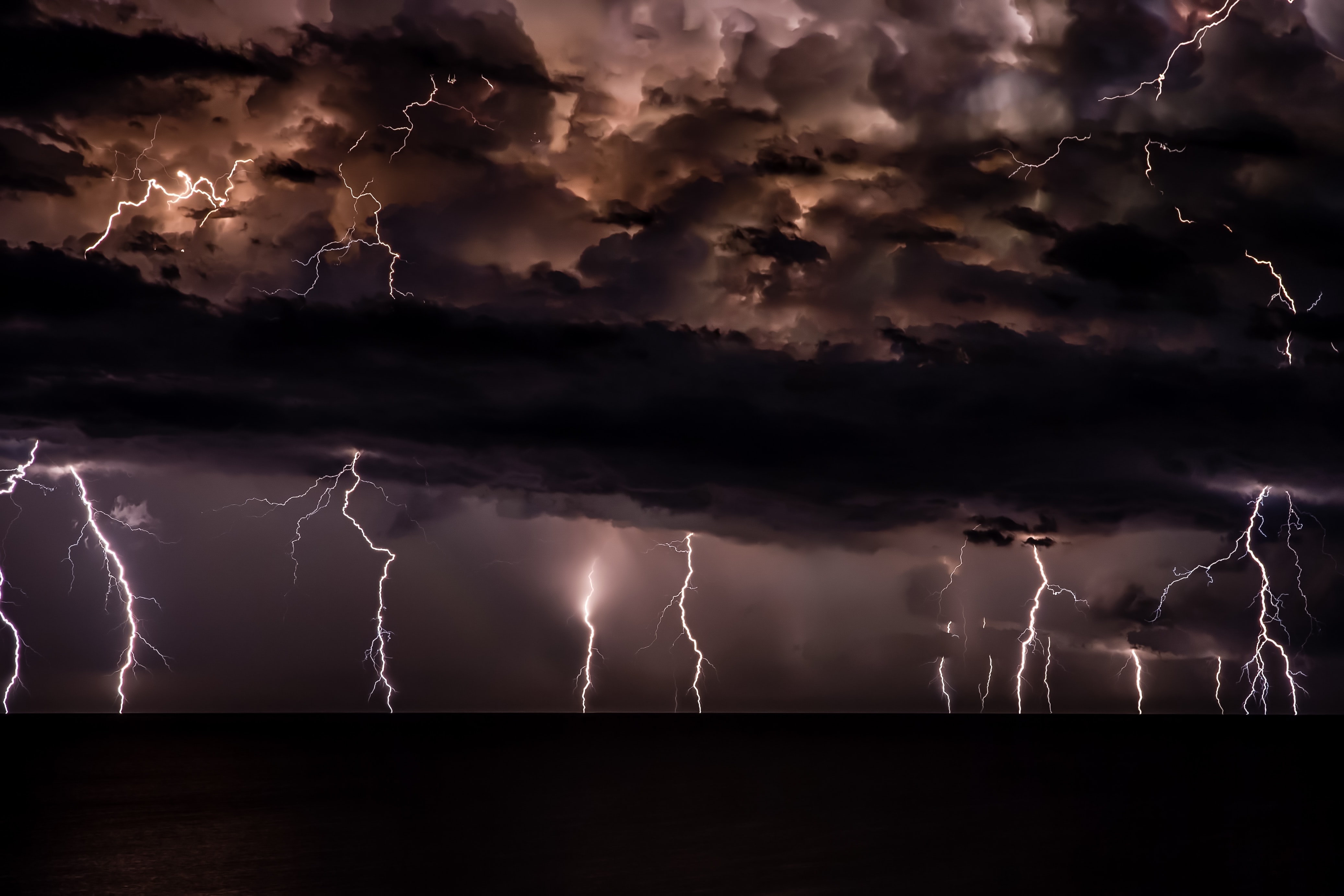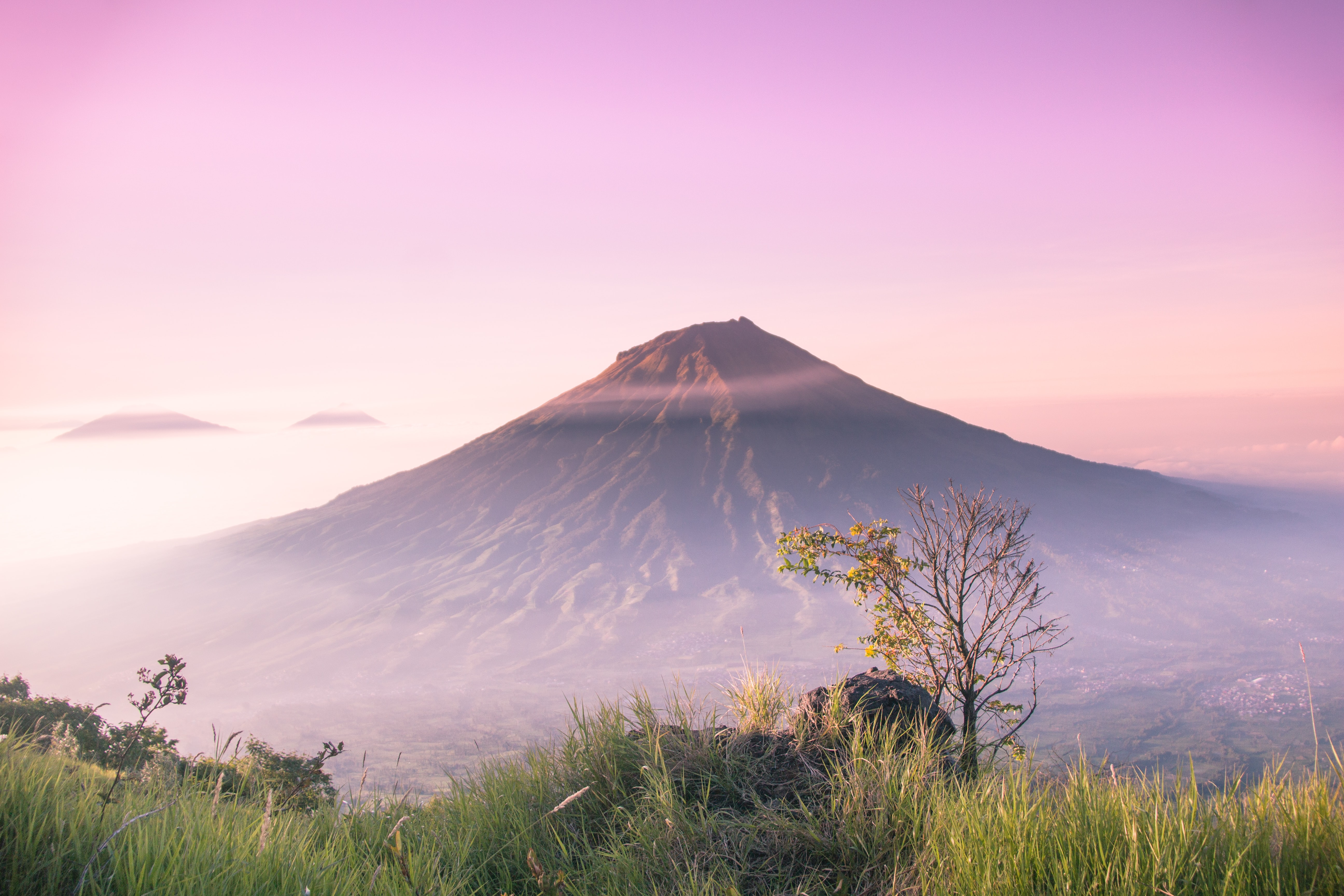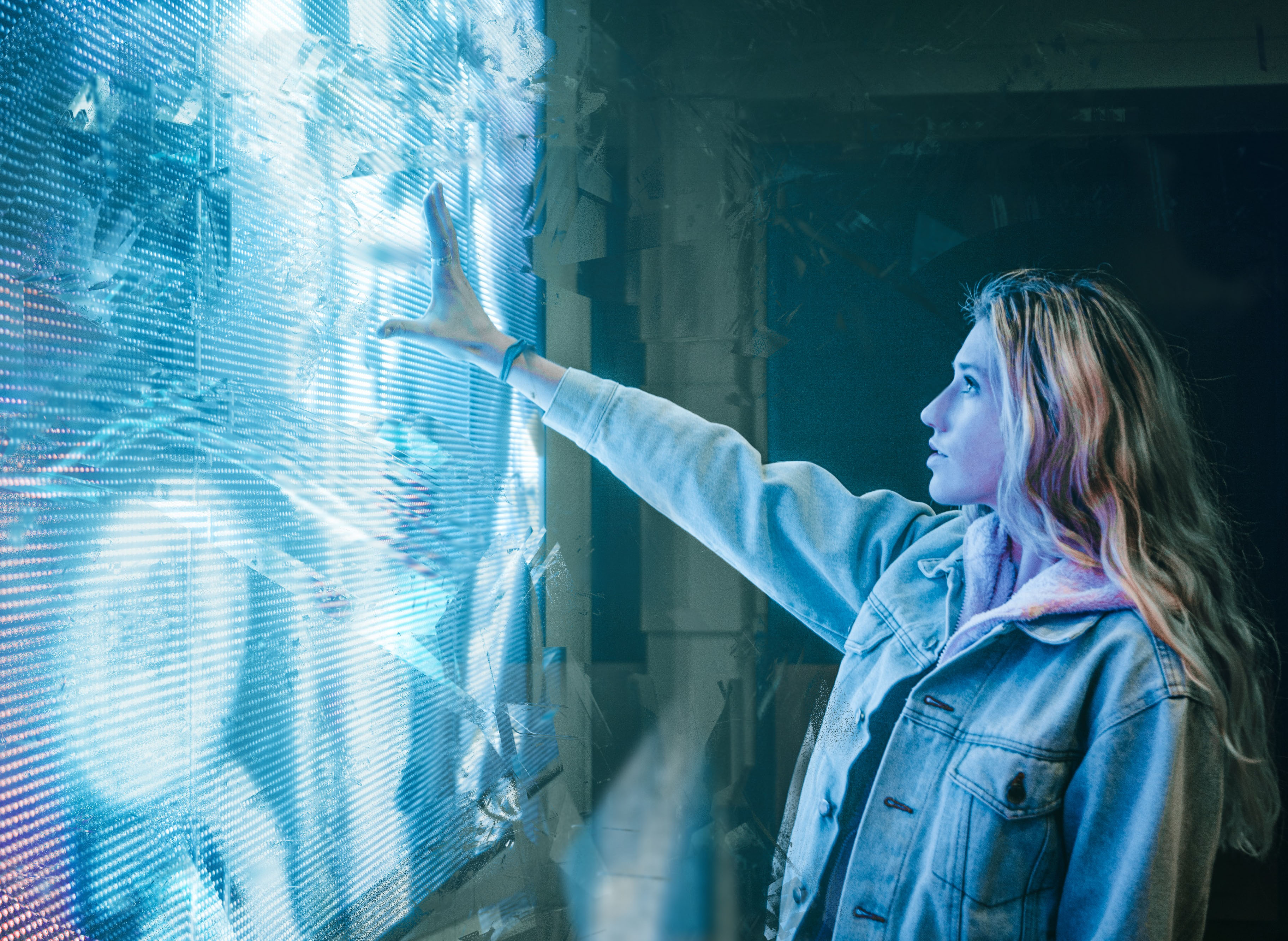It took me a long time to fully realise the truth about climate change. Up until a few years ago, I had somehow failed to recognise that approximately 97% of scientists agree that the earth is warming and that humans are to blame.

Image by Josep Castells from Unsplash
For over 30 years, the science has been clear on climate change. So how is it possible that I and many others are just waking up to the fact that it is a very real danger?
Perhaps it is as Greta Thunberg says:
At first when I heard about climate change, I was a climate denier. I didn’t think it was happening. Because if there really was an existential crisis like that, that would threaten our civilisation, we wouldn’t be focusing on anything else.
While it may be unbelievable to you that climate-change sceptics still exist in the year 2020, it’s not all that surprising, given the reasons we’ll go into below.
If you have a friend or family member that still scoffs at the science, then I first ask you to be compassionate rather than judgemental. By following the steps below, with any luck you might turn that climate-change denier into a climate-change activist!
Understanding: Why are people still sceptical about climate change?
In today’s world, access to the internet can make it seem like we have all of the planet’s information at our fingertips. However, filtering out the fact from the fiction can be a challenge in itself!
Not only are a million different messages thrown at us on a daily basis telling us that we should care/get angry about a variety of things — there are also people out there who are deliberately trying to mislead us.
Here are some reasons why people might believe that climate change is fake:
-
The media often frames climate change as a ‘debate’, which suggests that many experts around the world continue to disagree on the science. A misleading amount of airtime is given to climate-change sceptics and their ideas, in a bid to frame climate change as an ongoing dispute.

Image by Priscilla du Preez from Unsplash
-
The fossil fuel industry is actively funding climate-change denial using the very same strategies (and strategists) that were once used to defend the tobacco industry.
-
Over the years, environmental activists have been portrayed as jobless hippies who don’t have a practical grip on reality or understand what it takes to run a successful economy. There’s been a particular push by certain newspapers/companies to portray climate activists today as ‘dreamers’ and ‘idealists’ — people that we shouldn’t take too seriously.

Image by Stephen Arnold from Unsplash
-
Many people are just trying to survive on a day-to-day basis; to pay their bills and put food on the table. They may not have paid too much attention to climate-change science.
-
Finally, nobody wants to be shamed, or to feel that their lifestyle is being blamed for climate change, especially when this comes from folks who are in a better financial position than they are. People who are struggling already don’t want to be told that they must cut out meat, cycle to work, have shorter showers, and not have that barbecue on the weekend. Life is already tough enough and they have their own problems to think about, without adding guilt about the destruction of the planet to the mix. This is why we argue for systemic change rather than individual change at Extinction Rebellion. As climate essayist Mary Annaise Heglar argues: ‘the belief that this enormous, existential problem could have been fixed if all of us had just tweaked our consumptive habits is not only preposterous; it’s dangerous.’
Getting the mood right: How to approach your conversation with a climate sceptic
Before we look at some of the arguments that climate-change deniers might raise to you, here are four tips on how to have a rewarding conversation about climate change:
- Try to find common ground: You may have very different political beliefs to your climate-change–denying buddy, but you can both probably agree on some things. You both care about your family, you both love nature, or you both enjoy mountain biking. Try to start your conversation by talking about a common passion that may be under threat due to the effects of a warming planet.
- Avoid ridicule, shaming or self-righteousness: ‘I just can’t believe there are some idiots who still don’t believe climate change is real!’… is not a good way to start a conversation. Making your friend or family member feel stupid will only serve to annoy them and perhaps strengthen their beliefs. When someone speaks to you in a tone of superiority, it can make you feel stupid, childish and, moreover, like you want to prove them wrong! This is not a good mood to create if you are trying to change someone’s mind.
- Don’t overwhelm them with a bombardment of scientific facts: While you may think that simply explaining the science about climate change is a super-easy way to get someone to realise the truth, this is not always the case. Smokers, for example, know that tobacco is scientifically proven to be bad for them, but shoving science down their throats has been shown to have no effect on getting people to quit. We’ve seen a rise in science and fact denial over the past 10 years. As Markham Heid describes, experts find that this ‘is often rooted in identity and belonging, not in ignorance, and... changing minds may require a lot more than sound reasoning.’
- Show an interest in their view on climate change: Show respect for their outlook on the world and politely ask your friend or family member to explain why they hold the beliefs that they hold. Start your conversation from a place of interest rather than patronisation, and hopefully, your conversation partner will respond similarly and ask you questions back.
5 Common things that climate sceptics say and what to say back
Now, let’s get down to the nitty-gritty of the conversation and look at five things that your friend or family member might say to you if they are sceptical about climate change:
Statement 1: ‘The climate has changed lots of times before!’
Begin by agreeing with them. Yes, the climate of the Earth has changed over the course of history and nobody is denying that. Variation in the proximity of the earth to the sun due to slight shifts in the planet’s orbit, volcanic eruptions, and the natural release of gases such as methane, all have had an effect on the climate and have been the cause of both significantly cooler and warmer periods on Earth.

Image by Hamzah Hanafi from Unsplash
However, the difference this time is the rate of change since the second half of the 20th century, which is unprecedented in at least the past 2,000 years. And, if we stay on the current course, the earth risks reaching temperatures that the planet has not experienced in millions of years.
At the same time, the amount of carbon dioxide in the Earth’s atmosphere has reached unparalleled levels, increasing year-on-year since continuous records began in 1958 (currently around 410 parts per million). Following careful research and thousands of peer-reviewed studies, scientists today almost universally agree that the faster warming of the planet is caused by the pumping of heat-trapping greenhouse gases such as carbon dioxide into the atmosphere, which has increased immensely since the industrial revolution.
Scientists estimate that the last time that the level of carbon dioxide was over 400 parts per million was during the Pliocene Epoch, some millions of years ago, when the temperature of the earth was 2–3 degrees warmer, seas were at least 10 metres higher (a level that would now submerge major cities around the world) and horses and camels lived in the high Arctic. It is not a question of whether or not the actual earth will survive climate change, but of whether or not it will stay habitable for the human and other species, not to mention for our way of life.
Statement 2: ‘But it’s really cold and rainy outside!’
It can be even more difficult to convince someone that climate change is real when it’s snowing outside and you’re both wearing scarves and hats! However, the most important thing to remember here is that weather is not climate. While weather describes the day-to-day changes in rain or snow, wind and temperature, climate is the average weather pattern of a particular region over a long period.

Image by Amin Hasani from Unsplash
President Donald Trump recently fell victim to this, two American winters ago…
In the beautiful Midwest, windchill temperatures are reaching minus 60 degrees, the coldest ever recorded. In coming days, expected to get even colder. People can’t last outside even for minutes. What the hell is going on with Global Warming? Please come back fast, we need you!
— Donald J. Trump (@realDonaldTrump) January 29, 2019
Did you know that as the average global temperatures gradually rise, harsher winters, unusually cold temperatures, storms, and blizzards are actually expected in some areas? A study published in 2017 in the journal Nature Geoscience found a link between warmer Arctic temperatures and colder North American winters.
Humans can find it difficult to look at the bigger picture, so that’s where NASA comes in handy! Even if temperatures seem to cool off for a few years, looking at a short-term weather trend can be misleading

Video by NASA/JPL-Caltech from here
In a nutshell, climate change means climate disruption. One study, published in Science Advances, suggests that extreme deadly weather events could ‘increase by as much as 50% by the year 2100.’
Statement 3: ‘We don’t need to worry about that now!’
For the past 50 years, climate change has been treated by politicians and the media as a distant problem for future generations to solve. There has been no sense of emergency in tackling the crisis, despite the increasingly urgent warnings from scientists. So, when Extinction Rebellion first began to sound the alarm bells on climate change in 2018, many people thought that they were being overly dramatic and alarmist.

Image by Josh Hild from Unsplash
The truth is that climate change (with its environmental destruction) poses a threat to all of us, not in some faraway future, but now. Depending on where we live, we may not all be in danger of dying from extreme temperatures or having our houses submerged in floodwater. However, the effects of climate change and the ecological crisis will undoubtedly have a negative effect on our lives and the lives of our children. (Read this article to discover how climate change is linked to the rise in deadly pandemics.)
So, if a friend or family member dismisses your concerns about climate change as something that ‘we don’t need to worry about now’ or that ‘future generations will invent the technology to solve’, they are gravely mistaken. The Intergovernmental Panel on Climate Change warns that we only have 10 years left to cut carbon emissions enough to limit the effects of a climate catastrophe. After that time, many of the effects of climate change will be irreversible. This is why Extinction Rebellion demands that governments across the world cut carbon emissions to zero by the year 2025 rather than 2050.
Statement 4: ‘In the 1970s ‘scientists’ were worried about an ice age, but that didn’t happen. Why should we believe them this time?’
In the 1970s, a handful of scientists got coverage in the media for saying that the world was heading for an ice age. However, a survey of peer-reviewed articles from this period found that only seven studies predicted climate cooling. Even at the same time, significantly more papers (42 in total) actually predicted global warming, but the newspapers decided not to print that.

Image by Miguel Mansilla from Unsplash
We don’t really know the reason why a few journalists decided to cherry-pick and sensationalise these inaccurate ‘global cooling’ studies. Perhaps back in the 1970s, a pending ice age sounded more dramatic and shocking, and would therefore sell more newspapers. Who knows? However, what is important here is that in the 1970s ‘scientists’ referred to a small group of researchers whose speculations were repeated by a small group of journalists. As Eoin O'Carroll points out, however, today, scientists ‘refers to every single major scientific body in the world. There’s just no valid comparison.’
So, if your climate-denying friend comes out with this statement, then, before you tell them that they are wrong, first ask them if they know anything about the ‘scientists’ that predicted this ‘global cooling’ 50 years ago. The media often play tricks on us when they announce that ‘scientists say x’ or ‘scientists say y’, but, as consumers of information, we must always look more closely at who exactly are the ‘scientists’ that are being referred to.
Statement 5: ‘If we try to fix climate change, we’ll destroy the economy and millions of people will lose their jobs.’
The ‘false choice’ fallacy is one way in which corporations or the media try to manipulate people into believing what they want them to believe. They will often put forward two different arguments which are seemingly opposed, and suggest that people have to decide, morally, which side they’re on. Upon closer examination, however, you will see that it is not an ‘either–or’ choice at all.
When it comes to climate change, the false choice is ‘saving the planet’ vs. ‘saving the economy’ — i.e. people’s jobs and livelihoods. For example, President Trump has stated that the Paris Agreement would be ‘totally disastrous, job-killing, wealth-knocking out.’
"We announced our withdrawal from the totally disastrous, job-killing, wealth-knocking out, you know it knocked out our wealth or it would have. They basically wanted to take our wealth away. They didn't want us to use our wealth power." @realdonaldtrump on #ParisClimateAccord pic.twitter.com/BgJugzL5Ws
— Andrew Kimmel (@andrewkimmel) February 23, 2018
The reality is, however, that ‘there are no jobs on a dead planet’ as Ian Hodson, President of the Bakers’, Food and Allied Workers Union so succinctly put it. Our global economy is tied to our food systems, which are strongly tied to the climate. Everything is connected in a complex adaptive system, and if we fail in our attempts to slow climate change, the whole thing may come crashing down with unthinkable damage to our societies. We cannot save jobs and peoples’ livelihoods without saving the planet. The two are inseparable.
In fact, however, while climate action will mean that people who work in carbon-heavy industries such as oil and coal mining may lose their jobs, even more jobs in clean energy can be created.

Image by Remy Gieling from Unsplash
People will have to retrain, businesses will have to adapt and our failing systems will need to change. The shift to a green economy will take some adjusting to and will not be without its challenges. But what is the alternative? Do we stick to ‘business as usual’? Do we keep spiralling downwards into the abyss, with the knowledge that we are creating much, much worse problems for generations to come?
What if we’re wrong about climate change?
If you still haven’t been able to convince your friend or family member of the truth about climate change, then you only have one tool left in your arsenal. Pose the question: ‘What if the experts are wrong about climate change and it is fake after all? What if we go to all this trouble to try to change things for no good reason?’
With this technique, your friend or family member is forced to consider the possible consequences of behaving as if climate change is real, as opposed to behaving as if it were fake.
On the one hand, if we act as if climate change is real and do everything in our power to stop it, in the worst-case scenario, we get a healthier, less polluted planet with greener cities, more parks, fewer cars, cleaner rivers and seas. We end up switching to renewable forms of energy that won’t run out. We stop producing useless disposable objects that are created solely to keep the wheels of industry turning. And, we all get to breathe fresher air!
On the other hand, if we act like climate change is fake and continue life ‘as normal’, we run the risk of having to one day look our grandchildren in the eye and admit that we fundamentally failed them.